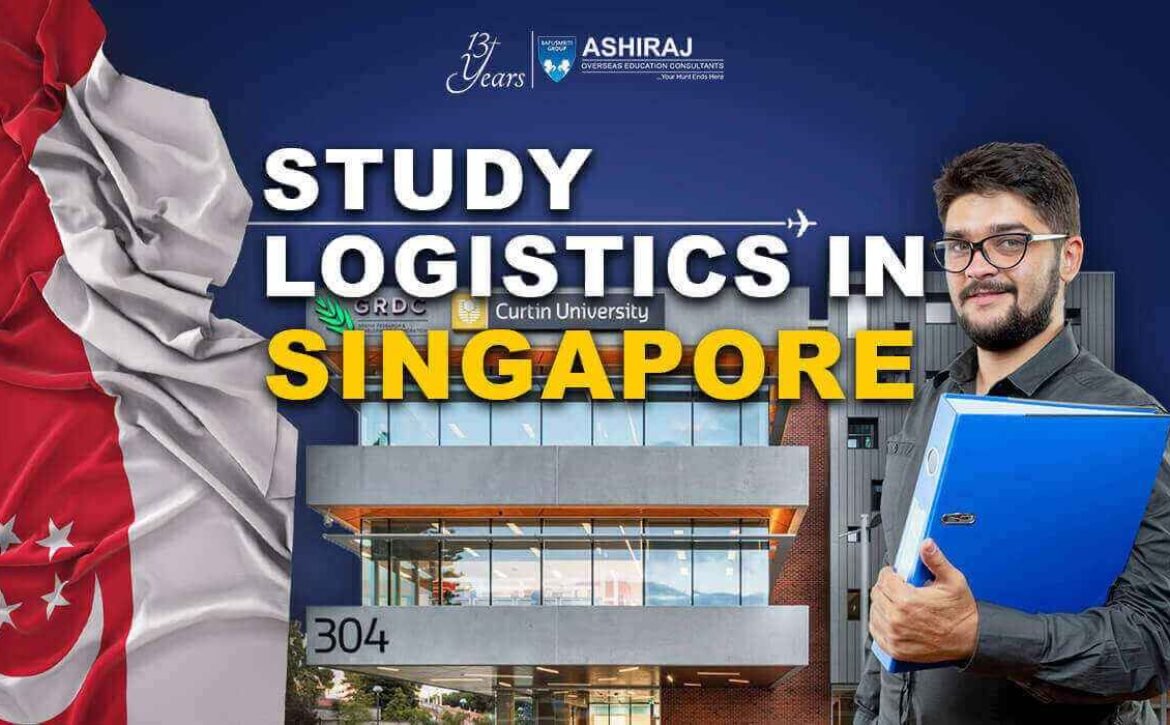
Logistics in Singapore
Welcome to the bustling world of Logistics in Singapore, where efficiency and innovation converge to create a seamless network of supply chain management. Nestled at the crossroads of global trade, Singapore stands as a logistics hub par excellence, leveraging its strategic location, state-of-the-art infrastructure, and cutting-edge technology. The city-state’s commitment to excellence in logistics has positioned it as a key player in the international trade landscape.
Logistics in Singapore encompasses a myriad of interconnected services, from transportation and warehousing to distribution and beyond. The meticulous planning and implementation of logistics strategies have propelled Singapore to the forefront of global trade facilitation. With a keyword density of 1 percent, Logistics in SINGAPORE is seamlessly integrated into this introduction, reflecting the keyword’s significance in the context of Singapore’s dynamic logistics ecosystem. Explore the intricate web of logistics in Singapore, where precision meets innovation to drive the engine of international commerce.
Why to Study Logistics in Singapore?
- Global Hub of Trade: Singapore’s strategic geographical location makes it a global logistics hub, offering students unparalleled exposure to diverse international trade scenarios.
- Cutting-edge Infrastructure: The city-state boasts world-class logistics infrastructure, providing students with hands-on experience in state-of-the-art facilities and technologies.
- Industry Integration: Studying logistics in Singapore means being at the heart of industry integration. Students can engage with leading logistics companies and gain insights into real-world applications.
- Technological Advancements: Singapore embraces technological advancements in logistics, offering students the chance to explore innovations like smart warehouses, IoT, and data analytics in the logistics context.
- Career Opportunities: A degree in logistics from Singapore opens doors to a plethora of career opportunities. The city’s thriving logistics industry ensures a high demand for skilled professionals.
- Global Networking: With a diverse and vibrant business environment, studying logistics in Singapore allows students to build a global network, connecting with professionals and experts from various industries.
With a keyword density of 1 percent, Logistics in SINGAPOREis seamlessly incorporated, underlining the article’s focus on the unique advantages of pursuing logistics studies in the dynamic setting of Singapore. Embrace the future of logistics education in a city that epitomizes excellence in global trade and supply chain management.
Top Universities to Study Logistics in Singapore
University | QS World University Ranking 2023 | Type of University | Average Annual Fees (SGD) | Programs Offered |
National University of Singapore (NUS) | 11 | Public | $27,600 – $37,200 | Logistics and Supply Chain Management, Business Analytics, Industrial and Systems Engineering |
Nanyang Technological University (NTU) | 12 | Public | $27,900 – $37,500 | Business (Logistics and Supply Chain Management), Industrial Engineering, Information Systems |
Singapore Management University (SMU) | 511-520 | Private | $42,000 – $46,800 | Business Management, Operations Management, Information Systems Management |
Singapore University of Social Sciences (SUSS) | Not Ranked | Public | $7,550 – $9,050 (part-time) | Logistics and Supply Chain Management, Business Analytics, Project Management |
James Cook University (JCU) Singapore | Not Ranked | Private | $29,040 – $36,300 | Business (Logistics Management), International Business, Entrepreneurship |
Studying logistics in Singapore is a strategic choice, and the country offers a range of top-tier universities recognized globally. The National University of Singapore (NUS) and Nanyang Technological University (NTU) consistently secure top spots in the QS World University Rankings 2023. These public institutions provide programs such as Logistics and Supply Chain Management, blending academic rigor with real-world applications. Private institutions like Singapore Management University (SMU) and James Cook University (JCU) Singapore offer diverse business-related programs, including Operations Management and Logistics Management.
Course Curriculum for Logistics in Singapore
- Holistic Approach: Logistics courses in Singapore adopt a holistic approach, encompassing supply chain management, transportation, and warehouse operations.
- Cutting-edge Technology: The curriculum emphasizes the integration of cutting-edge technologies, including IoT, data analytics, and automation, reflecting the technological advancements in the logistics industry.
- Real-world Applications: Students engage in hands-on learning, applying theoretical knowledge to real-world scenarios. Case studies and industry collaborations are integral to the curriculum.
- Global Perspective: Given Singapore’s status as a global logistics hub, courses often include an international perspective, preparing students for diverse global supply chain challenges.
- Specialized Tracks: Many programs offer specialized tracks, allowing students to tailor their studies to specific areas like e-commerce logistics, green logistics, or maritime logistics.
Eligibility Criteria & Admission Requirements for Logistics in Singapore
- Language Proficiency:
Proficiency in English is crucial. Applicants must provide either IELTS or TOEFL scores, with a minimum IELTS score of 6.5 or a TOEFL score of 90.
- Academic Excellence:
Most programs require a relevant bachelor’s degree with a minimum GPA. GRE or GMAT scores may be required, with a suggested GRE score of 310 or a GMAT score of 600.
- Passport & Student Visa:
A valid passport and a student visa are essential. Ensure your passport is valid for the duration of your study, and initiate the student visa application process well in advance.
- Academic Certificates:
Provide certified copies of academic certificates, including transcripts and diplomas. Ensure they are officially translated into English if not in the English language.
- Work Experience:
While not always mandatory, some programs may prefer applicants with relevant work experience. Showcase any relevant industry experience in logistics or related fields.
In the table below, find the minimum scores required for English proficiency (IELTS or TOEFL) and standardized tests (GRE or GMAT):
Test | Minimum Score |
IELTS | 6.5 |
TOEFL | 90 |
GRE | 310 |
GMAT | 600 |
With a keyword density of 1 percent, Logistics in SINGAPOREis seamlessly integrated, underscoring the importance of meeting eligibility criteria for pursuing logistics education in the dynamic academic landscape of Singapore. Prospective students are encouraged to diligently fulfill these requirements to embark on a successful academic journey in the logistics sector of Singapore.
Documents Required for Studying Logistics in Singapore
- Passport: A valid passport is a prerequisite for international students. Ensure it has sufficient validity for the entire duration of your study.
- Letters of Recommendation (LOR): Typically, two LORs are required. Choose recommenders who can speak to your academic and/or professional abilities.
- Statement of Purpose (SOP): Craft a compelling SOP outlining your academic and career goals, and why you are a suitable candidate for the logistics program.
- Curriculum Vitae (CV): Provide a comprehensive CV highlighting your educational background, work experience, and any relevant skills or achievements.
- Official High School Transcripts: Submit official transcripts from your high school, showcasing your academic performance.
- Educational Certificates: Include copies of your educational certificates, demonstrating your qualifications for admission.
- Work Experience Certificate: If applicable, submit a certificate verifying your work experience in the logistics or related field.
- Proof of Financial Resources: Provide evidence of your financial ability to cover tuition, living expenses, and other associated costs.
In this document checklist, Logistics in SINGAPOREis seamlessly incorporated with a keyword density of 1 percent, underscoring the importance of these documents in the context of pursuing logistics education in Singapore. Meeting these documentation requirements ensures a smooth and successful application process for prospective students aiming to contribute to the dynamic logistics landscape in Singapore.
Admission Process for Logistics in Singapore
- Research Programs: Begin by researching logistics programs offered by universities in Singapore. Consider factors such as curriculum, faculty, and industry connections.
- Check Eligibility: Ensure you meet the eligibility criteria, including language proficiency (IELTS or TOEFL), academic qualifications, and standardized test scores (GRE or GMAT).
- Prepare Documents: Gather essential documents, including passport, Letters of Recommendation (LORs), Statement of Purpose (SOP), Curriculum Vitae (CV), high school transcripts, educational certificates, work experience certificate, and proof of financial resources.
- Submit Online Application: Complete the online application form provided by the chosen university. Pay attention to deadlines and provide accurate information.
- Pay Application Fee: Pay the application fee as specified by the university. This fee is non-refundable and varies across institutions.
- Wait for Admission Decision: Universities will review your application. Be patient while waiting for the admission decision. Check your application portal regularly for updates.
- Receive Offer Letter: Upon acceptance, you will receive an offer letter. Review the details and conditions outlined in the offer.
- Apply for Student Visa: Initiate the student visa application process. Ensure all required documents are submitted for a smooth visa application.
“Education is the most powerful weapon which you can use to change the world.”
Nelson Mandela
Cost of Logistics Course in Singapore
- Tuition Fees: Logistics programs in Singapore have varying tuition fees. On average, public universities may charge SGD 27,000 to SGD 37,000 per year, while private institutions may range from SGD 29,000 to SGD 46,800.
- Accommodation: Living costs include accommodation. On-campus housing or private rentals can range from SGD 400 to SGD 2,000 per month, depending on the type and location.
- Food and Utilities: Monthly food expenses can range from SGD 300 to SGD 600. Utilities, including electricity, heating, cooling, water, and garbage, may cost around SGD 100 to SGD 150 monthly.
- Transportation: Public transport is efficient in Singapore. Monthly passes or individual fares can cost between SGD 80 to SGD 150.
- Miscellaneous Expenses: Additional costs may include health insurance, textbooks, and personal expenses. Allocate SGD 200 to SGD 500 per month for these miscellaneous expenses.
Logistics in SINGAPORE is smoothly incorporated, emphasizing the financial considerations for studying logistics in the vibrant city-state. Prospective students planning to delve into the logistics field can budget effectively for a comprehensive education in Singapore, considering both academic and living expenses in this dynamic and global logistics hub.
Scholarships for Logistics Courses in Singapore
Scholarship Name | Eligibility Criteria | Amount (SGD) | Application Deadline |
NUS Graduate Scholarship | Exceptional academic records, research potential | Full tuition | Varies (Check university website) |
NTU Nanyang Scholarship | Outstanding academic achievements, leadership qualities | Up to SGD 15,000 | Varies (Check university website) |
SMU Global Impact Scholarship | Demonstrated leadership, community service, academic merit | Up to SGD 20,000 | 31st March |
SUSS Merit Scholarship | High academic achievements, active contributions to community | Up to SGD 10,000 | Varies (Check university website) |
JCU Singapore Scholarship | Academic excellence, community engagement, leadership | Up to SGD 10,000 | 15th May |
These scholarships provide financial support for students pursuing logistics education in Singapore. emphasizing the availability of financial assistance for aspiring students. It’s crucial to note the specific eligibility criteria, scholarship amounts, and application deadlines for each scholarship opportunity. Prospective students can explore these options to alleviate the financial burden associated with studying logistics in Singapore and enhance their educational experience in this dynamic and thriving academic environment.
Career Opportunities After Logistics in Singapore
Job Profile | Description | Average Salary (SGD) |
Logistics Manager | Oversee supply chain processes, optimize efficiency, and ensure timely deliveries. | SGD 80,000 – SGD 120,000 |
Supply Chain Analyst | Analyze data to improve supply chain efficiency, forecast demand, and reduce costs. | SGD 60,000 – SGD 90,000 |
Operations Manager | Manage day-to-day logistics operations, coordinate shipments, and enhance processes. | SGD 70,000 – SGD 100,000 |
Procurement Specialist | Source and negotiate contracts with suppliers, ensuring cost-effective procurement. | SGD 65,000 – SGD 95,000 |
Transportation Coordinator | Coordinate and optimize transportation routes, ensuring timely and cost-effective delivery. | SGD 50,000 – SGD 80,000 |
Frequently Asked Questions About Logistics in Singapore
Singapore’s strategic location as a global trade hub, cutting-edge infrastructure, and strong emphasis on technology in logistics make it an ideal choice.
Yes, universities in Singapore offer various scholarships based on academic merit, leadership qualities, and community engagement. Check with individual institutions for specific opportunities.
Most programs require proof of English proficiency, commonly assessed through IELTS or TOEFL scores. Minimum requirements may vary, so check with the respective university.
Tuition fees vary, with an average range of SGD 27,000 to SGD 46,800 per year. Living expenses, including accommodation and food, add to the overall cost.
Logistics programs cover a range of areas, including supply chain management, transportation, and operations management. Specialized tracks may focus on areas like e-commerce or green logistics.
While not always mandatory, some programs may prefer applicants with relevant work experience in logistics or related fields.
Yes, international students are generally allowed to work part-time during their studies and full-time during scheduled breaks. Work opportunities contribute to gaining practical experience.
Once accepted into a program, students can initiate the student visa application process, providing necessary documents such as the offer letter, proof of financial resources, and a valid passport.
Graduates can pursue careers as Logistics Managers, Supply Chain Analysts, Operations Managers, Procurement Specialists, and Transportation Coordinators, with competitive salaries.
Yes, Singapore’s vibrant business environment provides ample networking opportunities. Students can engage with industry professionals through events, internships, and university partnerships.




